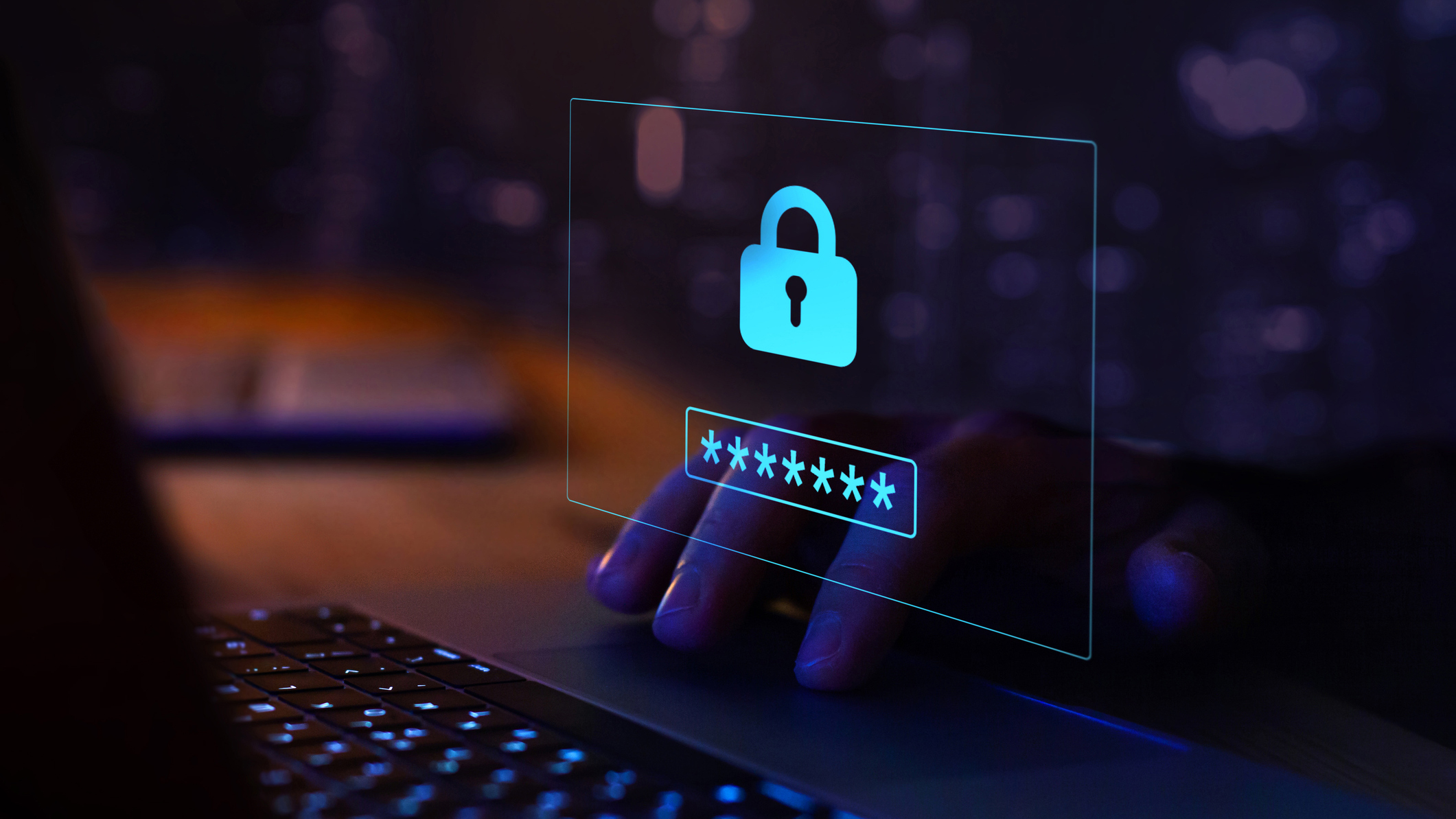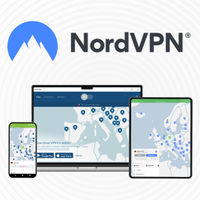Buying concert tickets? Here are 4 reasons why you need a VPN
Stay one step ahead of concert-spoiling cybercriminals

Grabbing gig tickets online can, sometimes, be a serious struggle – especially if they're selling fast. There are digital risks involved, too, seeing as you'll need to fork over your financial information, and fans in different places around the world sometimes pay different prices for the same tickets.
The good news is that a VPN can help make the process of buying concert tickets smoother, safer, and fairer – and you don't have to be a technical wizard to use one. Today's best VPNs are compatible with all devices, including laptops and mobiles, and work just like any other app you'd download.
Keep reading, and I'll dig into four reasons why you need a VPN if you've got those event tickets in your sights.
NordVPN - from $3.39 per month
The best VPN for most people
NordVPN is my go-to recommendation for anyone who wants to keep their financial transactions secure – whether they happen on your laptop, mobile, or another gadget. You can count on rock-solid encryption to keep your data out of the hands of snoopers, and NordVPN has an impressive (and audited) no-logs policy that adds an extra layer of protection to your browsing sessions. Basically, nobody will see what you get up to. NordVPN is an awesome choice for Netflix fans, too, since it's able to unblock pretty much every international content library out there. Check it out for yourself, risk-free, with a 30-day money-back guarantee.
1. Protect your purchases
Digital ticket sales are big business for vendors like Ticketmaster. People are willing to fork out fortunes to see their favorite artists in real-time – which, unfortunately, makes these transactions a tempting target for cybercriminals.
In May, we saw hackers target Ticketmaster, stealing the data of 560 million users. The group responsible for the theft later demanded a $500,000 ransom, claiming that, if the funds weren't forthcoming, the hacked data would be sold on to interested parties.

The data involved in the Ticketmaster hack included names, addresses, phone numbers, and even chunks of credit card information from users around the world.
A VPN (virtual private network) can't make a hacker think twice before targeting a site like Ticketmaster, but it there are VPNs with handy extras that can help keep your hard-won tickets safe.
Surfshark's Alternative ID is an awesome feature (available for all Surfshark One and One+ subscribers) that creates an entirely new digital identity for you. You'll get a new email address and a new persona (including a random name, date of birth, and address) that'll allow you to do your thing online with improved anonymity.
Get daily insight, inspiration and deals in your inbox
Sign up for breaking news, reviews, opinion, top tech deals, and more.
When it comes to buying tickets, you can use Alternative ID to ensure that they're not connected to your existing email, login details, or personal information – thwarting any would-be hacker's attempts to brute force their way into your account with info they might've gained from a previous data leak or picked up on the dark web.
However, it's worth noting that if you do decide to invest in Alternative ID, you'll need to purchase digital tickets – as physical tickets won't be delivered to the right place.
2. Get cheaper prices
Region-specific pricing is the bane of online shoppers everywhere. It's meant to reflect the difference in the value of global currencies and provide a level playing field, but it can feel pretty unfair when you're shelling out a small fortune compared to folks in other countries.
These same pricing models apply to tickets, too, but a VPN's geo-spoofing functionality is a great way to get around them.
Connect to a VPN server in another country (where the tickets you have your eye on are cheaper), and you'll be assigned a new temporary IP address based in that same location.

Tons of people use VPNs to make the most of their streaming subscriptions by checking out what shows and movies are available in different countries. Check out our guide to today's best streaming VPNs to see which providers we recommend.
The sites you visit will look at this IP address, think you're physically located in the same place as the VPN server, and serve up location-specific content – including prices, content, and streaming libraries.
This spoofing power also comes in handy if you live somewhere where the government imposes strict restrictions on what sites are (and aren't) accessible. Just connect to a VPN server where there are none of these blocks to check out news outlets, social media platforms, and other services that are often the target of bans.
3. Beat IP locks
IP locks can be just as frustrating as region-specific prices. These are the things that restrict you to one or two tickets per person – which is no good if you're looking to bag multiple tickets for you, your friends, and all those plus-ones.
Luckily, a VPN saves the day again here. IP locks are typically tied to a person's IP address – the identifying number your ISP (internet service provider) assigns to each of your internet-enabled devices.
Simply connecting to a VPN server cloaks your original IP address and gives you another one, temporarily, which means that the ticket vendor will think that you're a brand-new customer.
This IP-cloaking feature gives your overall digital security a boost, too, as it means that your online activity is much harder to trace back to you when you're using a VPN.
4. Stay secure on the day
You've got your tickets, you've waited weeks for the day to arrive, and now it’s finally here – you're going to see that one band or singer you've wanted to see for ages. Before you leave the house, however, it's well worth making sure that you have a mobile VPN installed on whichever device you'll be taking along.
Why? Well, the free Wi-Fi offered by some venues (and public places like train stations, cafes, and airports) just isn't as secure as the Wi-Fi you use at home. It tends to lack the same encryption measures and usually doesn't require users to sign in to access the network.
Unfortunately, this makes these free hotspots a prime target for hackers and data-hungry cybercriminals who want to pilfer your logins, financial information, and other personal details that could win them a profit on the dark web.
Crafty hackers sometimes create their own fake Wi-Fi hotspots
They may do this with a Man-in-the-middle (MITM) attack, intercepting your data as it travels through the unsecure network. Sometimes crafty hackers will create their own fake Wi-Fi hotspots and name it something similar to the real thing – like, Free_Venue_WiFi - in the hopes that you won’t think twice about joining it.
Then, as you go about your usual online business, logging in to social media, buying new goodies, and messaging friends, the hacker can see and record everything you do.
With your trusty VPN at hand, however, its encryption prevents snoopers from reading your data, even if you join a risky free Wi-Fi network or a bogus hotspot. Big events and big gigs provide prime opportunities for hackers to go fishing on Wi-Fi networks for user data – so don't make it easy for them.
How to choose a VPN
A quick Google search will reveal hundreds of VPNs all vying for your business – but how do you tell which services are the real deal and which ones just don't care about your privacy? Here’s my handy checklist of must-have features:
- Security: this one's obvious, but important. You want a VPN with industry-standard AES-256 encryption and today's top VPN protocols: OpenVPN and WireGuard. A VPN gets bonus points if its no logs policy has been audited, too.
- Speed: a VPN that slows you to a crawl just isn't worth using. Luckily, today's fastest VPNs have a negligible impact on your device’s speed, making them great picks for streaming, torrenting, and scrolling through social media while you wait in the queue outside the venue.
- Servers: the more servers a VPN has (and in more locations), the more choices you have when it comes to spoofing your location. This makes it easier to hop from country to country to find better deals on tickets, avoid bans, and unblock sites and services from pretty much anywhere.
- Compatibility: most VPNs have apps for all platforms; Windows, Mac, Android, iOS, and a whole host of browsers included. Still, it's important to make sure that the service you choose will work on the gadgets you plan to use every day (and take out on your adventures).
- Customer service: things go wrong – it's inevitable, and it's why having 24/7 live chat support is so important. You won't have to wait for answers or help troubleshooting issues, and VPN support staff can even help you pick out the best server for your specific use case.
Disclaimer
We test and review VPN services in the context of legal recreational uses. For example: 1. Accessing a service from another country (subject to the terms and conditions of that service). 2. Protecting your online security and strengthening your online privacy when abroad. We do not support or condone the illegal or malicious use of VPN services. Consuming pirated content that is paid-for is neither endorsed nor approved by Future Publishing.

River is a Tech Software Editor and VPN expert, helping take care of cybersecurity content on TechRadar, ranging from reviews, buying guides, and must-have VPN deals. River's expertise in the cybersecurity field opened their eyes to the startling amount of online snooping we accept into our daily lives. Now, River is committed to fighting for your right to digital privacy by shining a light on its biggest threats – and helping readers safeguard their data with the help of a VPN. Surfshark is River's favorite VPN, and they use it every day to keep their most sensitive details out of the hands of third-party trackers.
